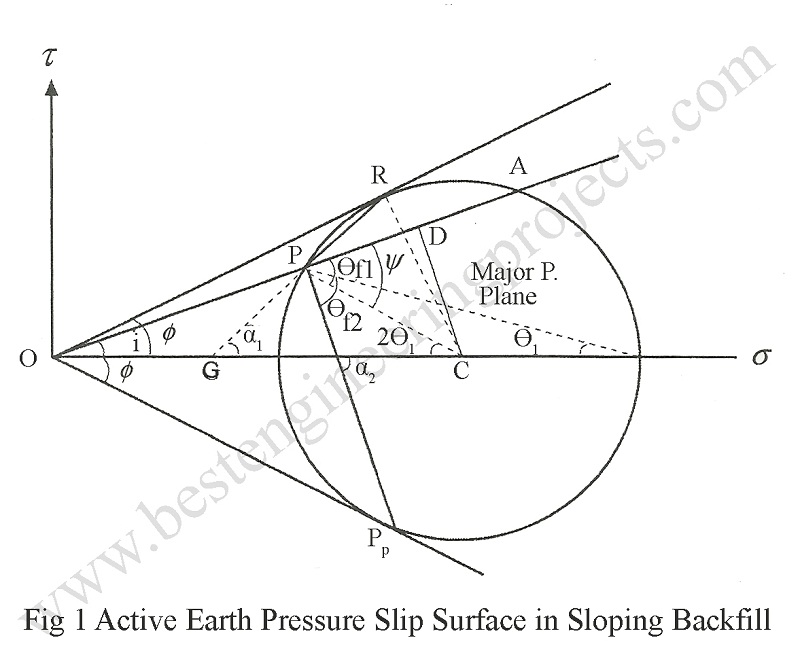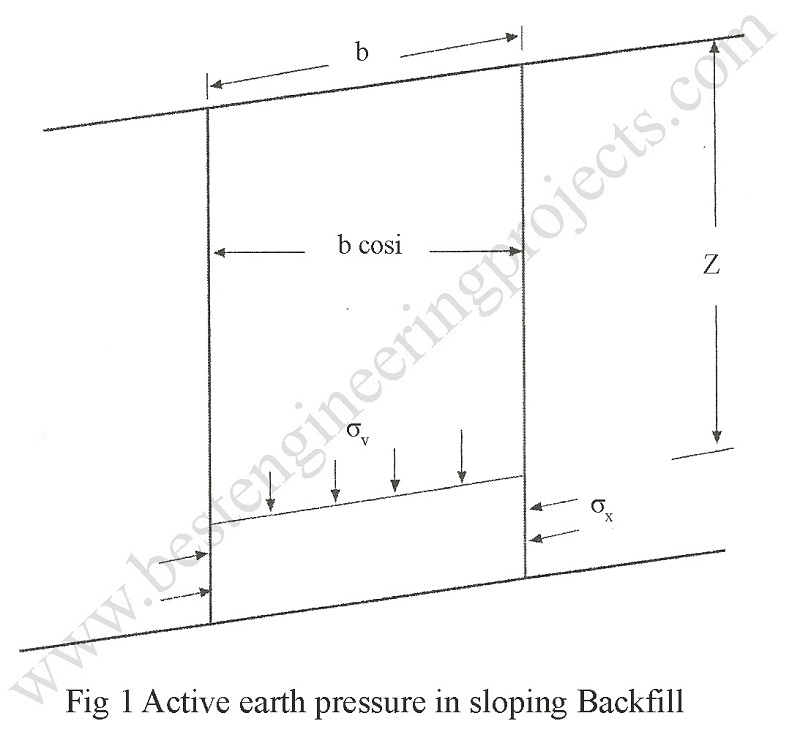What are the Effect of Sloping Surcharge in Active Case?
in this article we will discuss about Effect of Sloping Surcharge in Active Case. A wall carrying a sloping backfill is shown in Fig.1. Consider an element subjected to a stress in the vertical direction and
in the direction parallel to the backfill. As these stresses in one plane are parallel to the direction of another plane, these stresses are conjugate stresses and the planes are the conjugate planes. The equivalent vertical stress acting parallel to the surface of backfill is given by:
———- (1)
The Mohr Circle, which represents this case of inclined backfill is shown in the Fig 1.
Referring to the figure above (figure 1), the coefficient of active earth pressure can be written as:
We can also write:
CD = OC sini
OD = OC cosi
Because PC = R
By substitution these values in the expression for Ka we get;
Therefore,
Where,
and is known as the coefficient of active earth pressure.
If, and
are the inclination of failure planes with horizontal as shown in figure 3
But,
Hence,
And Similarly,
Where, CD normal to OA
and

